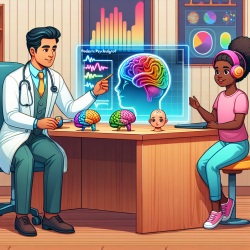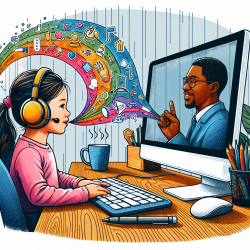Feeling lost within the vast sea of school culture can be overwhelming, not just for students but for parents and school social workers alike. The intricacies of navigating educational environments, especially when therapy or special education is involved, require a gentle yet informed touch. As a therapist working in an educational setting, I've seen firsthand the challenges and triumphs that come with fostering a positive school culture. This blog aims to guide school social workers and parents through understanding and enhancing the school experience for all students, particularly those receiving therapy or special education services.
School culture is the heartbeat of any educational institution. It encompasses the values, beliefs, interactions, and practices within a school community. A positive school culture promotes inclusivity, understanding, and support for all students, including those in special education or those receiving therapy services. As school social workers, you play a pivotal role in shaping this culture, acting as a bridge between students, parents, and educators.
For parents, navigating the school system to ensure your child receives the appropriate support can sometimes feel like deciphering an unknown language. It's natural to feel lost or overwhelmed. However, understanding the school's culture and how special education and therapy services fit within that framework can empower you to advocate effectively for your child.
Understanding the Role of Therapy in Schools
Therapy services in schools, whether in-person or through online platforms like TinyEYE, are designed to support students' emotional, social, and academic growth. These services are integral to creating a school culture that values and supports mental health and learning differences. For children in special education, therapy can be a critical component of their individualized education plan (IEP), providing them with the tools they need to navigate their educational journey successfully.
School social workers, you are often the first point of contact for identifying students who may benefit from therapy services. Your unique position allows you to observe students in various settings within the school environment, giving you insight into their needs and challenges. By fostering open communication with parents and educators, you can ensure that students receive the support they need, when they need it.
Building a Supportive School Culture
Creating a supportive school culture begins with understanding and acceptance. For parents, this means engaging with school staff, attending meetings, and being present in the school community. Your involvement shows your child that their education and well-being are important to you. It also allows you to be an active participant in shaping the school culture, ensuring it is inclusive and supportive of all students.
School social workers, your role in building a supportive school culture cannot be overstated. By advocating for policies and practices that promote inclusivity and understanding, you help create an environment where all students feel valued and supported. This includes facilitating training for staff on topics such as mental health awareness, learning disabilities, and the importance of therapy in education. It also involves working closely with parents to understand their concerns and perspectives, creating a partnership that benefits students.
Collaboration Is Key
One of the most effective ways to navigate and enhance school culture is through collaboration. Parents, school social workers, educators, and therapy providers need to work together to create a cohesive support system for students. This collaborative approach ensures that students' needs are met holistically, encompassing academic, social, and emotional support.
For parents, collaboration means being open to discussions with school staff and therapy providers. It involves sharing insights about your child's needs and experiences and being receptive to feedback. This two-way communication is crucial for developing strategies that support your child's success in school.
School social workers, collaboration for you means facilitating these discussions, bringing together all parties involved in a student's education. It involves coordinating with therapy providers, like TinyEYE, to ensure that therapy services are integrated seamlessly into the student's educational plan. By fostering a collaborative environment, you help create a school culture that recognizes and celebrates diversity, supports students' unique needs, and promotes academic and personal growth.
Embracing Online Therapy Services
The integration of online therapy services into school culture is an innovative way to provide support to students who need it. Platforms like TinyEYE offer flexible, accessible therapy options that can be tailored to meet the individual needs of students. For children in special education, online therapy can be a valuable resource, providing them with consistent support regardless of their physical location or the resources available within their school.
Parents, embracing online therapy services means recognizing the value of technology in supporting your child's education and well-being. It allows for greater flexibility in scheduling and can provide access to specialized therapy services that may not be available locally. For school social workers, online therapy services offer an additional tool to support students. It allows for easier coordination of services and ensures that therapy can continue uninterrupted, even in circumstances where in-person sessions are not feasible.
Conclusion
Navigating and enhancing school culture requires understanding, collaboration, and a commitment to supporting all students. As school social workers, you play a crucial role in shaping this culture, advocating for policies and practices that promote inclusivity and support. Parents, your involvement and advocacy are equally important, ensuring that your child receives the support they need to thrive.
Together, by embracing tools like online therapy services and fostering open communication, we can create a school culture that truly supports the academic, social, and emotional growth of every student. Let's work together to ensure that no child feels lost within the school system, and that every student has the opportunity to succeed.










